Author: Beth Bobbitt
Bruce Hughes, Robert Brandon
Written by Beth Bobbitt on . Posted in Previous Winners, Steve Pieringer Award for Outstanding Valor in News Coverage.
1972 Steve Pieringer Award for Outstanding Valor in News Coverage
David Day
Written by Beth Bobbitt on . Posted in Previous Winners, Steve Pieringer Award for Outstanding Valor in News Coverage.
1970 Steve Pieringer Award for Outstanding Valor in News Coverage
Steve Pieringer *
Written by Beth Bobbitt on . Posted in Previous Winners, Steve Pieringer Award for Outstanding Valor in News Coverage.
1968 Steve Pieringer Award for Outstanding Valor in News Coverage
Dr. Alan Albarran
Written by Beth Bobbitt on . Posted in Educator of the Year, Previous Winners.
2022 Educator of the Year
(Published August 2022)
The work of TAB’s Educator of the Year has demonstrated an unwavering commitment to furthering the broadcast industry through higher education, research and training in Texas and around the globe.
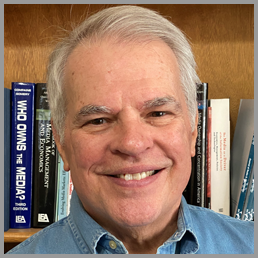
Dr. Alan B. Albarran is Professor Emeritus and former Chair of the Department of Media Arts at the University of North Texas in Denton.
Alan had the privilege of serving three generations of Texas students in his career at three different universities.
His resume reads like a “who’s who” of Texas universities with outstanding broadcast programs.
He moved to Texas in 1979 to join the faculty at Sam Houston State University in Huntsville and manage the school’s station – KSHU-FM.
In 1987, he and his family moved to Columbus, Ohio where Alan served first as a Teaching/Research Assistant and then as full-time instructor at THE Ohio State University.
After graduating with his Ph. D in 1990, the Albarran family moved back to Texas and Alan took an Assistant Professor position at Southern Methodist University.
At SMU, Alan established himself as one of the top researchers on media management and economics.
Over the next 10 years, he would move through the ranks to become a Full Professor and Associate Dean, as well as integrating himself within the broadcast industry in DFW.
“When Alan was at SMU, I was Market Manager for Susquehanna Radio Dallas and he regularly asked me to speak to his students. ” said Texas Radio Hall of Fame Broadcaster Dan Halyburton.
“It turned out we had an earlier connection as competitors in ASHLAND Kentucky. It was 1974 He was a DJ At WAMX and I was a DJ and Program Director at WTCR. My on-air name was ‘Dan the Music Man’. And YES, I am still ‘Music Man’ when Alan calls me on the phone.”
In 2000, Alan joined UNT as Professor and Chair of the Department of Radio, Television and Film.
He established the unit’s first professional advisory board, made up of industry professionals.
In 2007, he received grants totaling $1.5 million to establish the Center for Spanish Language Media, the first such entity in Texas devoted to research in this area.
He is former president of the Broadcast Education Association and was an active member of the Texas Association of Broadcast Educators for many years, serving as president of TABE in the 1990s.
Alan retired in 2018 – after teaching many generations of students who continue to serve the broadcast industry at all levels in Texas and around the world.
A former Fulbright Scholar, he continues to research and write in retirement.
He and his wife Beverly are the parents of two daughters and grandparents of five grandchildren – who he affectionally has named “The Fab Five.”
Mac Aipperspach
Written by Beth Bobbitt on . Posted in Educator of the Year, Previous Winners.
2019 Educator of the Year
(Published August 2019)
TAB’s Educator of the Year has worked in the broadcast industry in one form or another since the early 1970s.
Mac Aipperspach began his career at the campus radio station at John Brown University (JBU) in Siloam Springs, Arkansas.
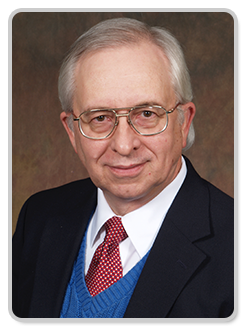
After graduation he moved to Texas and held positions at KBUD Athens, KPAN Hereford (where he worked for Texas Broadcast Pioneer Clint Formby) and KGNC Amarillo.
While in graduate school at the University of North Texas, Aipperspach taught a radio/television writing courses and served as Assistant Station Manager of the campus station KNTU-FM.
After completing his Master’s degree in RTF, he joined the staff at Del Mar College in Corpus Christi – where he works to this day.
The radio/television program was only a year old when he was hired.
Over the course of the next 38 years, the program has grown from a converted classroom to a specially designed television studio with auxiliary rooms for audio and video editing.
A specifically designed radio suite also has been added, with the hope of an Internet radio station in the future.
As the only fulltime faculty member teaching radio/television courses, Aipperspach has had the chance to have students in several courses and watch them grow in abilities and gain positions in a variety of places.
Several students are, or currently have been, with CNN in Atlanta.
Other students have gone into teaching or are working in some media capacity with high schools, colleges, and universities.
Beginning in the mid-1980s, Mac became involved with the Texas Association of Broadcast Educators.
With the encouragement of Dr. Bob Eubanks at Sam Houston State University, Aipperspach first became the Secretary/Treasurer of the organization and then moved up to Vice-President and then President.
He has served at the TABE Secretary/Treasurer since 1994.
He has worked hard at bringing broadcasters and educators together to benefit each other in the industry and broadcast education.
Aipperspach has always tried to provide his students with the best training possible and to be as realistically close to what they would encounter if working in the broadcast industry.
The number of assignments in his courses is immense, but the idea is for students to understand the meaning of deadlines and how things are done at radio and television stations.
Whenever he learns of opportunities available within the industry, he encourages his students to apply for the positions to gain experience and a chance to begin their careers.
“During Mac’s impressive 38 years at Del Mar College, he has impacted the careers of thousands of broadcast professionals who are working across the country,” said Don Dunlap, President and General Manager of KEDT-FM/TV Corpus Christi.
“In South Texas, his students and graduates have fueled the broadcasting workforce for years. Besides being a caring instructor with his students, Mac has been a mentor and positive role model to them.”
His expertise, enthusiasm and attention to the success of his students confirms that Mac Aipperspach is fully deserving to be named TAB’s 2019 Educator of the Year.
Danita McAnally
Written by Beth Bobbitt on . Posted in Educator of the Year, Previous Winners.
2018 Educator of the Year
(Published August 2018)
Teachers endeavor daily to prepare the next generation of broadcasters.
The rapid-fire changes in the broadcast industry can be challenging.
But as many educators will attest, the challenges are no match for the passion and boundless enthusiasm of students.
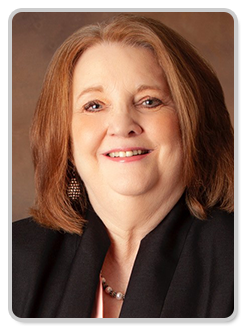
TAB’s 2018 Educator of the Year – Danita McAnally – set extremely high standards for Texas broadcast educators to follow.
After completing her Master of Education degree from Eastern New Mexico University in 1978, McAnally joined Navarro College in Corsicana as an Instructor of Radio-TV.
In 1982, she was promoted to Director of TV where she managed the college’s LPTV station – in addition to teaching Radio-TV and Public Speaking classes.
She joined Amarillo College as an Assistant Professor of Radio-TV, Mass Communications and Speech in 1987.
McAnally held nine different positions in her nearly 28 years at the college with each position increasing in responsibility from faculty to administrator to executive.
While journalism and production are key anchors of every strong broadcast curriculum, she singled out advertising as a field that needed attention.
She understood the importance of providing stations in all market sizes a pool of talent interested in bringing the power of broadcasting to local and national advertisers.
“Danita was truly passionate about widening the ranks of education institutions engaged with the Texas Association of Broadcast Educators (TABE).
She believed, correctly, that doing so would bring a wide array of insights and perspectives to college classroom across the state,” said Mac Aipperspach, Professor of Radio/Television at Del Mar College and longtime TABE secretary/treasurer.
Throughout her two decades of involvement with TABE, she held numerous board positions and served two terms as President.
She retired from Amarillo College in 2015 and now works as a sales consultant in Amarillo, putting into practice the insights and skills she gleaned from a lifetime in the classroom.
Dr. Joe Oliver
Written by Beth Bobbitt on . Posted in Educator of the Year, Previous Winners.
2016 Educator of the Year
(Published August 2016)
Dr. William Joseph (Joe) Oliver says, “Professionally I’m one of the luckiest people in the world because I was captivated by the magic of radio as a young boy and I was able to spend my entire work career of 49 years in some aspect of the broadcast business. I never had to do anything else.”
Oliver’s career began at age 16 when he was hired by his hometown radio and TV station, WOWL Florence, AL.
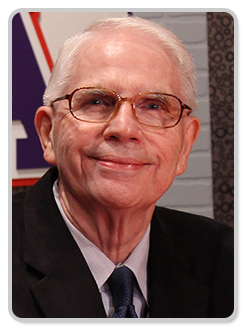
He worked a full-time schedule while finishing high school.
Oliver did TV news anchoring and announcing but his passion was radio, which was enhanced after he spent some brief one-on-one time with newsman Paul Harvey who was in town for a speaking engagement.
Harvey talked to him about radio writing and storytelling and Oliver became a lifelong fan of his techniques.
After graduating in 1967 with a Bachelor’s Degree in English and Speech from Florence State College (now University of North Alabama), Oliver next earned a Master of Arts degree in Radio-Television from the University of Mississippi.
Part of his academic work was consulting with Mississippi radio station managers and writing a guidebook for program personnel, which was distributed throughout the state.
WREC-AM-FM-TV Memphis hired him as an on-the-air announcer and radio personality and he eventually became operations manager.
A highlight of his six-year stint with the stations was researching, writing and producing the AM station’s golden history, “WREC…at 50,” a program distributed as part of commemorative ceremonies for the station.
While a full-time Memphis broadcaster, he also held a half-time faculty appointment with the University of Mississippi, where he taught broadcasting courses.
Oliver taught a year in the Radio-TV department at Arkansas State University before returning to Ole Miss for more media studies and earning his Ph.D. in 1977.
His doctoral dissertation resulted in a published, national study of broadcast managers’ attitudes and perceptions of broadcast education and curriculum needs.
He joined the faculty of Stephen F. Austin State University in 1976, eventually earning full professorship.
His teaching centered on Radio-TV writing and media management, and SFA recognized him with a teaching excellence award.
Oliver’s research interests on curriculum emphasized feedback from broadcasters for improvements in training needs.
“Upon my coming to SFA in 1992, Dr. Oliver insisted I go to my first TAB Convention, to meet broadcasters and expand my knowledge of the industry to take back to the classroom.
He was very passionate about bringing the broadcast industry to his students,” said Sherry Williford, SFA Radio & Television faculty and friend.
Oliver directed the M.A. program in communication for 30 years, which included curriculum options for professional training of broadcasters and educators.
He established a permanent broadcasting scholarship to honor his friend, the late Mike Shapiro, former president of Belo.
Oliver was responsible for designing a new university radio station, KSAU-FM, which was developed along the lines of a fully-professional station, but managed and operated by students.
During its first 12 years, more than 1,000 students were trained in professional standards of management and creative performance.
The station was cited for numerous achievements, including winning a first place public affairs award from United Press International in competition with commercial stations.
Oliver served as President of the Texas Association of Broadcast Educators in 1983 and led the group to revise its constitution to allow two-year colleges to gain membership.
In 1988, he served as President of the Texas Broadcast Education Foundation and helped launch TAB’s fundraising program that expanded the number and amounts of permanent scholarships available to students.
In 2008, and after his retirement from SFA, Oliver was named TABE Emeritus for his distinguished organizational service over the years and dedication to students.
“Dr. Joe Oliver was as passionate about educating students as he was about the commercial broadcasting field that he loved…and as careful and meticulous about preparing his courses, as he was about his work as a professional broadcaster,” said Dr. Robert Ramsey, retired SFA Communication Department chair.
Since retirement in 2007, Oliver has continued to live in Nacogdoches with his wife of more than 50 years, Gloria.
He spends time communicating with his former students, reading history and listening to radio for several hours every day.
Dr. Sam Sauls
Written by Beth Bobbitt on . Posted in Educator of the Year, Previous Winners.
2014 Educator of the Year
(Published August 2014)
Dr. Sam Sauls has been in the field of education for more than three decades.
He retired as an Associate Professor from the University of North Texas in August 2013, after 29 years on the faculty in the Department of Radio, Television and Film.
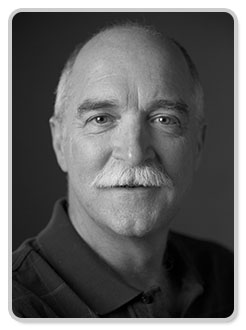
He has combined his experience in commercial and noncommercial radio to help advance broadcasting by educating hundreds of young people, and perhaps some not so young, in the field of radio/television.
Dr. Sauls’ interest in the field of audio dates back to his initial studies at San Antonio College while working on his associates’ degree.
He began his career in radio at KSYM San Antonio.
He was on-air at KTSA, KTFM-FM, KITY-FM, KONO and KSYM in San Antonio, as well as KDNT Denton, KMMK McKinney and KAFM Dallas.
He also worked as an account executive at KEMM-FM Greenville.
Dr. Sauls continued to work in radio at the college station – KNTU-FM – while an undergraduate and graduate student at UNT.
He worked for four years in Saudi Arabia as the audio production/language laboratory manager at the National Center for Financial and Economic Information in Riyadh.
He also directed field operations for City Colleges of Chicago in Europe while living in Germany and taught speech courses for Central Texas College in Heidelberg and Mannheim.
Dr. Sauls eventually returned to the University of North Texas in 1984 as a lecturer in the UNT Department of Radio, Television and Film and station manager of the campus radio station.
He served as station manager until 1994, upon completion of his doctoral degree.
At that time he became an assistant professor and was promoted to associate professor in 2000.
During his tenure, he also held the roles of Associate Chair and Director of Graduate Studies in the Department of Radio, Television and Film.
Using wit, humor and a very approachable style, Dr. Sauls was always a University of North Texas student favorite who helped nurture those interested in audio and enlighten those who were not.
He is extremely passionate about the subject and has a wonderful ability to communicate that allows his students to achieve through his guidance.
A highlight of Dr. Sauls’ career in education is his longtime membership with the Broadcast Education Association.
He served as the 2005 BEA convention program chair and was elected to the BEA Board of Directors in June 2006 – serving as BEA President in 2011-2012.
Dr. Sauls has been a long-standing member of the Texas Association of Broadcast Educators. He has held many of the offices in this organization, including President.
Dr. Sauls has always been very supportive of TABE’s mission and because TABE is affiliated with BEA and TAB, his support has extended to the other organizations. Through his participation with TABE, he is familiar with the concerns and issues that face TAB and broadcasters.
Dr. Sauls’ research interests include noncommercial broadcasting, programming effects, survey research, media pedagogy and audio production.
He also is the founder and president of Samuel J. Sauls, Inc., specializing in publishing, educational consulting and professional services.
Iowa State University Press published Dr. Sauls’ first book, The Culture of American College Radio, in March 2000.
His first edition of his work text, Basic Audio Production: Sound Applications for Radio, Television, and Film, was published by Thomson Custom Solutions in 2006, followed by the second edition in 2007.
He is the lead author of the seventh edition of Audio Production Worktext: Concepts, Techniques and Equipment from Focal Press, published in March 2013.
With Bud Buschardt, the book The Sump’n Else Show is planned for publication in 2014.
Dr. Sauls and his wife, Donna, reside in the mountains of Pennsylvania where he is an adjunct professor in the Department of Communications at Susquehanna University in Selinsgrove.
The fall 2014 semester will begin his 31st year in higher education and teaching broadcasting.
Colleagues know him as funny, wise and devoted to academia in Texas.
He is in every sense a dedicated academic, with a real passion to help shape the next generation of broadcasters.
Dr. Dennis Harp
Written by Beth Bobbitt on . Posted in Educator of the Year, Previous Winners.
2012 Educator of the Year
(Published August 2012)
The Texas Association of Broadcasters presents the Educator of the Year award to individuals who have significantly contributed to the success of the broadcast industry in Texas and whose personal and professional conduct sets a standard of excellence to be emulated.
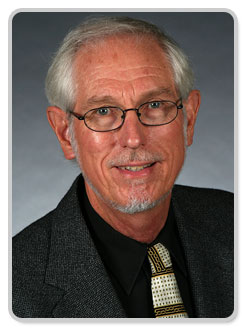
Former students and colleagues consistently mention Dr. Harp as a role model and praise his innovation, creativity and true passion for the broadcast industry.
Dennis Harp, native of Gainesville, holds a bachelor’s degree in commercial art from Texas State University, a master’s degree with an emphasis in broadcasting and journalism minor, and a doctorate in educational technology with a journalism minor (Texas A&M Commerce).
During his early days in the industry, he hoped to follow in the footsteps of Pioneer Broadcasters Wendell Mayes, Jr. and Gordon McLendon.
Harp was a faculty member from 1973 to 2008 at Texas Tech’s College of Mass Communications, serving as director of its Telecommunications Division from 1973-1992, associate director of the School of Mass Communication from 1992-2003, and from 2004 until his retirement in 2008 as professor of electronic media and associate dean of faculty in the college.
In 1980, Harp acquired a large broadcast collection valued at $200,000 from Gordon McLendon.
In 1981, he was responsible for obtaining the “Life Line” broadcast collection from Melvin Munn.
He added the “Facts Forum” television series that was donated by Hunt Oil Company in 1985.
All these materials are housed at The Southwest Collection at Texas Tech.
In 1982 and 1984, Harp visited Eastern Europe on trips sponsored by the Romanian government to produce television features on anti-aging medical treatments, natural curative medicine associated with that country and the Dracula myth.
At Texas Tech, he produced 45 informational, promotional, and developmental video presentations for educational, health, and public organizations and foundations that were financed by grants or for-profit enterprises.
He co-produced a half-hour newscast three evenings a week on KTTZ-TV Lubbock from 2000-2004.
Harp’s instructional emphasis at Texas Tech was electronic media and media technology systems, including broadcasting, cable, corporate and online communication applications.
In 2010, he served six months as interim general manager of public television station KTTZ-TV, Channel 5 in Lubbock.
Through his career, Harp was a recipient of six innovative teaching awards and one research award.
He was twice named Mass Communicator of the Year by the College of Mass Communications for his contributions to the students, academic programs and community, and 2002 Teacher of the Year by the Texas Tech agricultural communications student ACT chapter.
He also received the 2003 Spencer Wells Creative Teaching Award from the Texas Tech Association of Parents.
In 2007, Harp joined Dr. Jerry Hudson to document the storied careers of more than 20 members of TAB’s Texas Pioneer Club.
The interviews are archived on Texas Tech’s website.
Harp was inducted into Texas Tech’s College of Mass Communications Hall of Fame in February 2009.
He has always believed that broadcasting is all about localism – and the more, the better.
For his students, Harp continuously stressed the need for experience in every aspect of a radio or TV station.
Even if the ultimate goal is to go into sales, a broadcaster should have a good on-air background so they can truly understand how the station operates.
Former student John Sparks remembers Harp’s patience and genuine concern for his students.
“Dr. Harp was the professor of my television production class and the industry has vastly changed since then,” said John Sparks, retired Communication Department Chair at South Plains College.
“One thing did not change – Dr. Harp’s sincere love for the industry and for his students. Having him for a professor was one of the true blessings of my life.”
Harp is former president of the Texas Educational Television Association; associate director of educational relations, International Television Association; and served a four-year appointed term on the public media panel for the Texas Commission on the Arts.
Harp also was a member of the Texas Broadcast Education Foundation board of directors for 10 years.
Today Harp serves on KTTZ-TV’s advisory board, The Lubbock Chorale board of directors and National Cowboy Symposium & Celebration advisory board.
Harp lives in Lubbock with his wife, Ellen, since retiring in 2008.
He is enjoying helping Ellen with her business – From the Garden – a market garden growing flowers, fruit, herbs and vegetables.

All content Copyright © 2026 Texas Association of Broadcasters